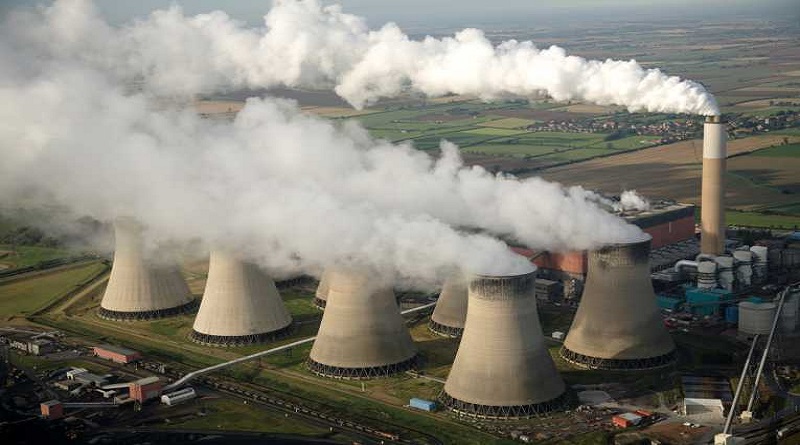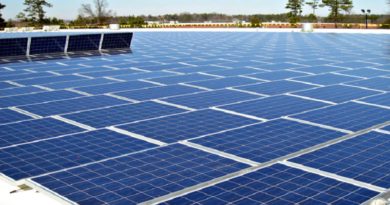Group urges leaders to stop new coal power plants, switch to renewables
As fires ravage vast swathes of forests, sea levels rise, oceans warm up and floods and cyclones become more frequent and severe, civil society representatives from Climate Action Network in Southeast Asia, South Asia, Japan and Australia called on world leaders to halt the climate crisis by ending all new coal-fired power plants and switching to renewables.
Speaking at UN Asia Pacific Climate Week (APCW) here on Wednesday September 4, 2019, they urged countries to heed the call from UN Secretary General Antonio Guterres, who is convening the Climate Action Summit in New York on 23 September. Countries must step up climate action and strengthen their national climate targets by 2020 to respond to the climate emergency.
Nithi Nesadurai, Regional Coordinator of CAN Southeast Asia (CANSEA) said: “Southeast Asia has relied on fossil fuels to support its economic growth. Unfortunately, some countries are planning to rely heavily on coal for the future. Apart from going against the spirit of the Paris Agreement, this strategy will block solutions for energy efficiency and renewable energy and act as a barrier for finance for renewables. This has to change: new coal projects must be halted and financial flows have to be shifted away from coal into renewable energy and low carbon development.”
CAN Southeast Asia, Japan and Asia members specifically called out China, Japan and South Korea to stop financing fossil fuel projects in Southeast Asia, and for Australia to stop exporting coal and to step up as a climate leader.
CAN members participated in APCW along with youth groups, who like their counterparts from around the world are actively mobilizing to demand urgent action to address the most dangerous threat to their future. Asia Pacific youth groups are joining the Global Week of Action and Climate Strike starting September 20 and led by ‘Fridays for Future’ and other civil society organizations.
CAN is a member of a consortium project called Shifting Financial Flows to Invest in Low Carbon Development in Southeast Asia (SHIFT-SEA) which has been developing multi-stakeholder platforms, comprised of NGOs, private sector, governments, academia and other actors, to actively drive the process of crafting concrete policies and climate action in the region.
Southeast Asia is critical in achieving the 1.5°C goal of the Paris Agreement because it is one of the fastest growing regions in the world but continues to be largely reliant on fossil fuels, particularly coal, despite its wealth of renewable energy resources such as solar, geothermal and hydro.
Conclusions of the APCW like other regional climate talks preceding it, are expected to feed into the UN Climate Action Summit.
Yuki Tanabe, Program Director, Japan Center for a Sustainable Environment and Society (JACSES) said, “The Government of Japan committed in its Long Term Strategy (LTS) towards the Paris Agreement, to make its energy development in line with the long-term goal of the Paris Agreement. However, Japan is still actively supporting coal-fired power projects in Japan and overseas without any scientific rationale. Thus, Japan should remember its own word, and should end its support for coal energy.”
Sanjay Vashist, Director, CAN South Asia (CANSA) said, “The energy transition era starts now with affordable renewable energy and considering environmental consequences of coal, the South Asian governments need to read the writing on the wall. It’s time to start moving away from coal and provide clean and sustainable energy from solar and wind. We expect no more addition of infrastructure of fossil fuels and an immediate shift in investments to renewable energy.”
Fiona Ryan, Cairns Climate Action Network (CCAN) said, “Coal mining is a threat to the unique Great Barrier Reef. The Australian government’s complete paralysis on climate action is a frustration to our Pacific neighbours. Australia’s indifference to the survival of those nations and their ancient cultures is a threat to its standing among the community of nations. Its lack of action on climate change and in stopping fossil fuels such as coal, in particular, is also a threat to the Great Barrier Reef and the $50 billion it delivers to the Australian economy. Investments in coal will result in “stranded assets” with huge consequence on people’s lives and livelihoods in addition to a ruined national environment. The future is renewables.”




